Dr. Mardy's Quotes of the Week (Are You an Original or a Copy?")
July 21—27, 2024 | THIS WEEK: “Are You an Original or a Copy?"
Opening Line of the Week
The opening words of the novel come from Maude Coffin Pratt, a trail-blazing photographer who, in her later years, has retreated to her family’s Cape Cod mansion.
As Maude prepares for a retrospective exhibition of her work, she begins to reflect on the many significant ways her work was influenced by other artists and photographers—and it ultimately leads her to question exactly how original she really was.
2,000 memorable opening lines from every genre of world literature, go to www.GreatOpeningLines.com.
This Week’s Puzzler
On July 29, 1805, this man was born in Paris. Growing up, he was raised in an aristocratic French family that had long supported the French Crown. As supporters of Louis XVI, however, they ended up on the losing side during the French Revolution. After the hostilities ended, he spent a brief period of exile in England before returning to France during what is known as The Bourbon Restoration. Like his father before him, he planned a political career, but went about it in an unusual way.
In 1831, he sought and received official permission to travel to the United States, ostensibly to examine American prisons and penitentiaries. In reality, though, he believed that political and cultural developments in America held great promise for France’s future as well as his own. For both reasons, he wanted to learn as much as he could about the newly-formed country.
After a nine-month visit that took him as far west as Wisconsin and as far south as Louisiana, he returned to France and produced a small pamphlet on American prison reform. Three years later, in 1835, he published the first volume of his magnum opus: Democracy in America. That book, along with a second volume in 1840, made him famous in France and America—and forever established his reputation in history.
While his American visit was brief, his powers of observation were so keen and his ability to express himself so exceptional that he captured the essence of the new country in many remarkable descriptions. Here are two examples:
Not long after his death in 1859, he was routinely being described as one of history’s most influential political theorists. In his writings, he wrote with grace and eloquence on diverse topics, and one of my favorites is this observation from The Old Regime and the Revolution (1856).
Who is this person? (Answer below)
Would You Say You Are an Original or a Copy?
I loved the “History is a gallery” quotation in this week’s Puzzler from the moment I first came across it many decades ago. As I began to reflect on the beauty of the thought, I had a vague recollection of another similarly-phrased observation. Try as I might, though, I simply couldn’t bring it to mind. When something like this happens today, I can usually resolve the issue in minutes by using the “Find” function on my computer.
It was in the early 1980s when I first discovered the Puzzler quotation, and I hadn’t yet transferred my personal quotation collection—then about 5,000 quotations—into an electronic format. After an exhaustive search that seemed to take forever, I was thrilled when I finally found the quotation that had slipped from my memory.
This remarkable observation appeared nearly a century earlier than the Puzzler quotation and, while I can’t be certain, I believe it inspired our Mystery Man’s 1856 thought. As I reflected further on the two observations, it struck me as richly ironic that the Puzzler quotation’s tribute to originality in human life was derivative—and, technically speaking, unoriginal—rather than an original thought.
Young’s observation represented the first appearance of the “originals and copies” subject in intellectual history, and it is perfectly captured by the primary definition of original in The American Heritage Dictionary: “Preceding all others in time; first.”
Despite the surface similarity of the two quotations, they have a decidedly different emphasis. The Puzzler quotation suggests that true originality is so rare that most of what we’ve seen throughout history—whether it concerns events, ideas, or people —are attempts to reflect and reproduce what already exists and not to create something new.
Young’s observation, by contrast, takes a more individual perspective, arguing that all children are born with a unique set of traits and characteristics that have the potential to blossom in a wide variety of ways in adulthood. As they grow and develop, though, Young was pained to see the overwhelming majority of children squandering their potential through blind conformity or slavish imitation.
Taken together, though, both quotations have a “be-yourself-not-someone-else” quality that brings to mind one of the best things ever written on the subject of being an original. It comes from the legendary American poet e. e. cummings, and it first appeared in a 1955 letter to a high school student who’d written the poet to ask if he had any advice for young people who wanted to write poetry. Imagine that young student’s shock when he actually got a reply to his letter—and further imagine his amazement when he read the stunningly beautiful piece of advice:
Given what you’re read so far, it might be tempting to ask the question, “As I reflect on my own life, would I describe myself as an original or a copy?” This may sound like an important question, but I’m afraid it’s a false dichotomy.
It’s also a gross oversimplification. No single individual is a copy or an original. We’re all complex blends of the two, and it might seem more appropriate to ask: “Am I more of an original, or more of a copy?” That question, however, is suspect as well. You see, even the most highly original people have emulated, imitated, and even directly copied selected aspects of people they deeply admire. And, on the other side of the ledger, even the most extreme imitators are not mere carbon copies of their role models, but people with many other distinctive and totally unique qualities.
As we delve a bit more deeply into the matter, we see that throughout history, originality—along with courage—has been celebrated as a key factor in people forging fresh, new paths rather than continuing to travel down the heavily-trodden roads of their progenitors. The poet Robert Frost may have expressed it best:
The second most famous quotation on the subject is widely attributed to Ralph Waldo Emerson, although you should know that, as beautiful as the sentiment is, it has never been found in his speeches or writings:
This observation is all about people venturing beyond the familiar as they attempt to create a future that is uniquely their own. But even those who go their own way bring important aspects of their past with them. That is certainly true in my case. While the life I forged for myself is dramatically different from that of my parents, I have also never stopped admiring and emulating some of their most important qualities, including a strong work ethic, a commitment to excellence in personal pursuits, and a deep suspicion of phonies.
Throughout history, originality has been a prized trait, unoriginality frowned upon, and copying downright disparaged. So let me bring my remarks to a close this week by mentioning a few wonderful exceptions to the general rule. In a 1759 article in The Bee, the celebrated English thinker Oliver Goldsmith reminded us of the critical importance of copying when he wrote:
“People seldom improve when they have no other model but themselves to copy.”
And from two very different worlds—etiquette and romantic love—here are two observations on being unoriginal that it’s hard to argue with.
This week, as you attempt to see the personal implications of this week’s post, perhaps the best question you can ask yourself is: “As I reflect on my entire life, in which ways have I been an original, and in which ways a copy?” As you approach the subject, let your thinking be stimulated by this week’s selection of quotations:
I’d like to be an original, to be myself and not a pale copy of anyone else. — Julie Andrews
If you are destined to do anything original there is some germ of it growing in you now, and you first need to discover and cherish that. — Charles Horton Cooley
Originality is something that is easily exaggerated, especially by authors contemplating their own work. — John Kenneth Galbraith
You can’t copy anybody and end up with anything. If you copy, it means you’re working without any real feeling. And without feeling, whatever you do amounts to nothing. — Billy Holiday
If you do not express your own original ideas, if you do not listen to your own being, you will have betrayed yourself. — Rollo May
It is better to fail in originality than to succeed in imitation. — Herman Melville
You’ve got to be original, because if you’re like someone else, what do they need you for? — Bernadette Peters
Originality is nothing but judicious imitation. — Voltaire
Most people are other people. Their thoughts are someone else’s opinions, their lives a mimicry, their passions a quotation. — Oscar Wilde
By “original minds” I mean the thinkers who broke unknown grounds for human thought, whose thinking soared to heights where others had not been before. — Lin Yutang
For source information on these quotations, and others on the subject of ORIGINALITY, go here.
Cartoon of the Week:
Answer to This Week’s Puzzler:
Alexis de Tocqueville (1805-59)
Dr. Mardy’s Observation of the Week:
Thanks for joining me again this week. See you next Sunday morning, when the theme will be “Marriage.”
Mardy Grothe
Websites: www.drmardy.com and www.GreatOpeningLines.com
Regarding My Lifelong Love of Quotations: A Personal Note

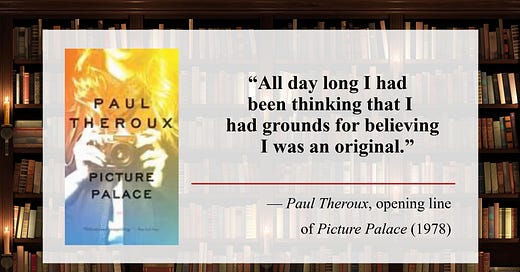


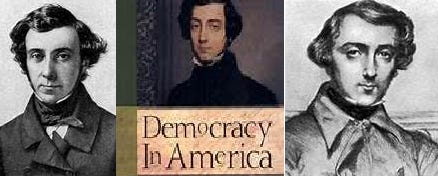


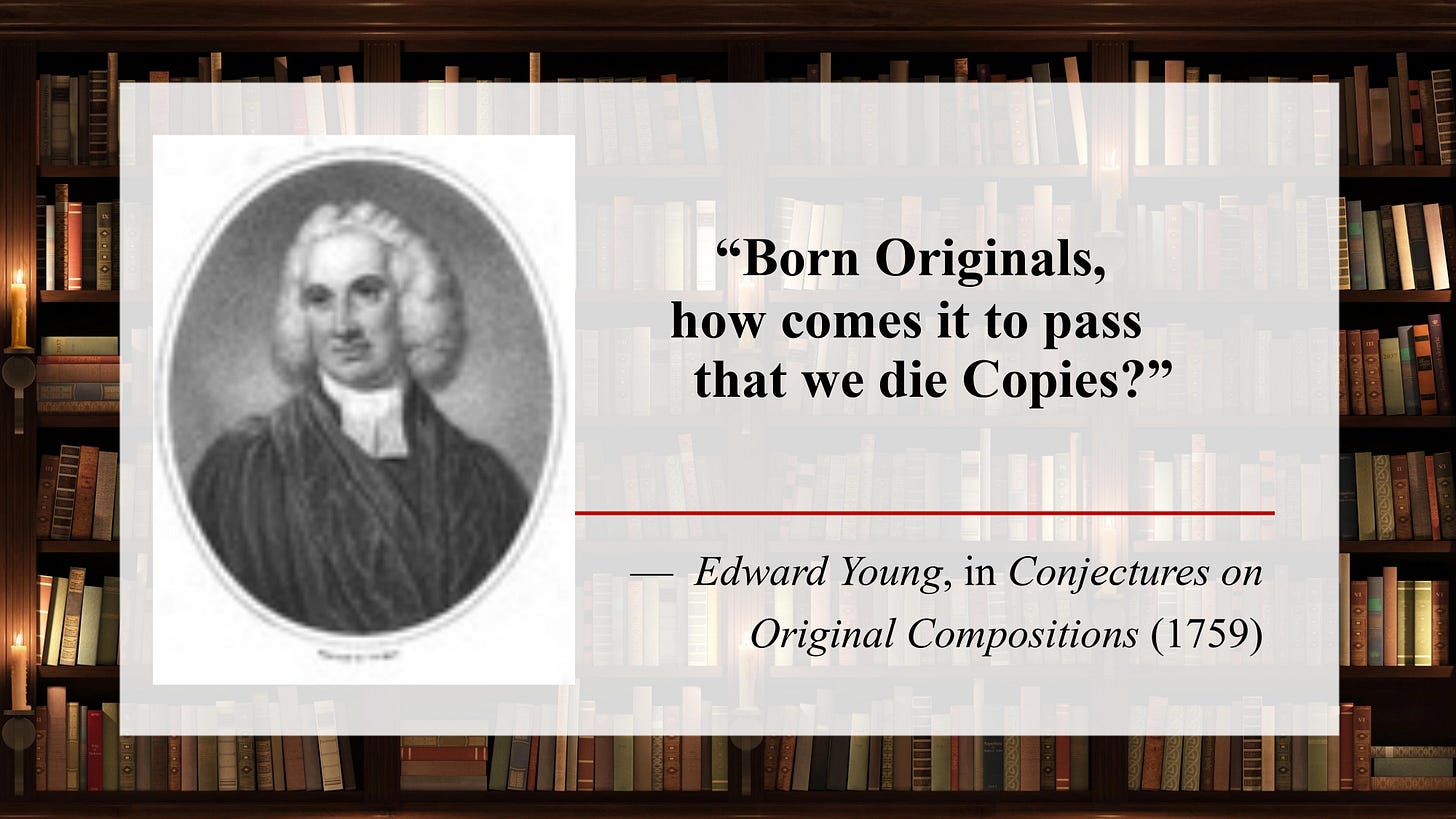


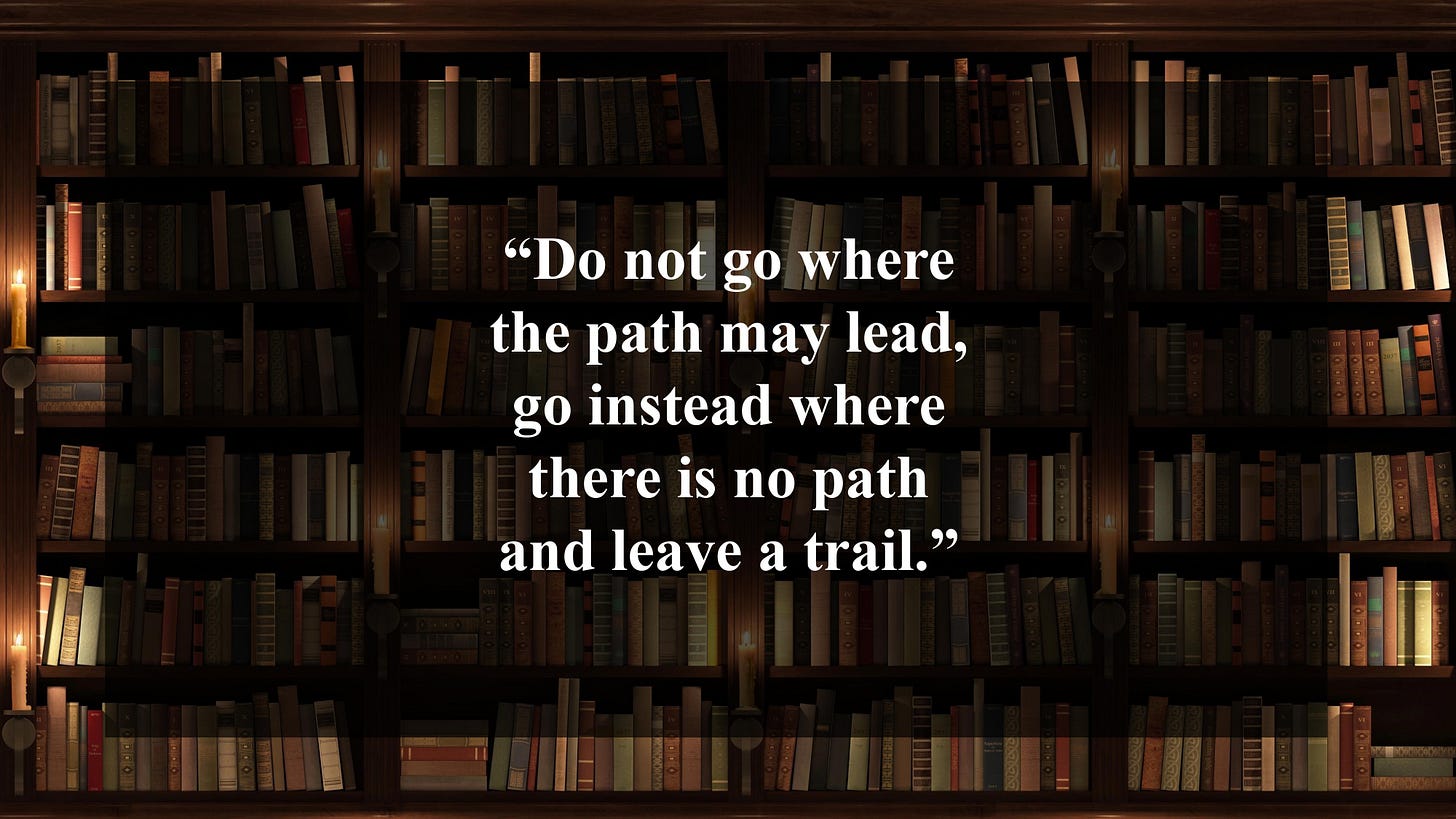
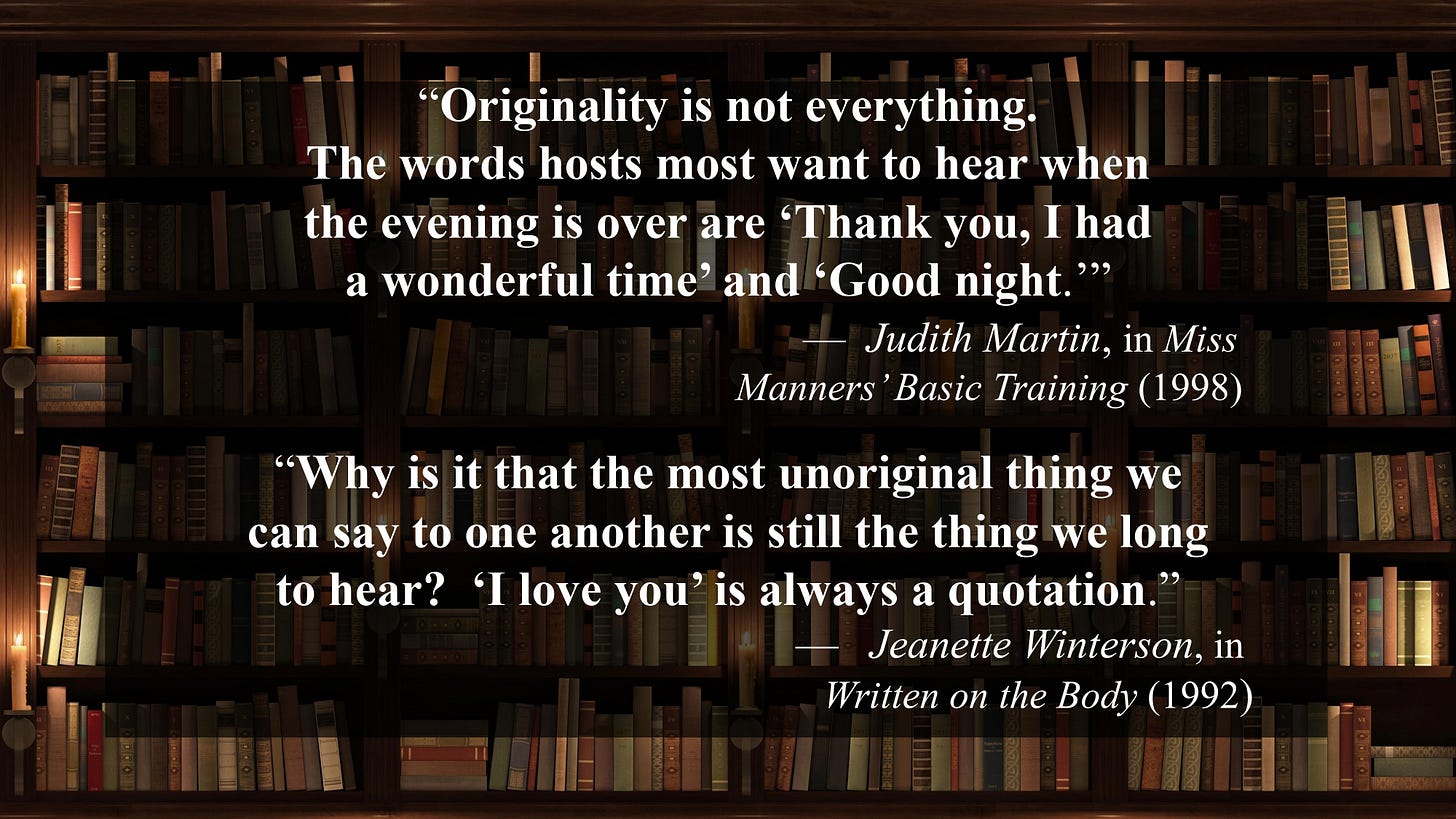
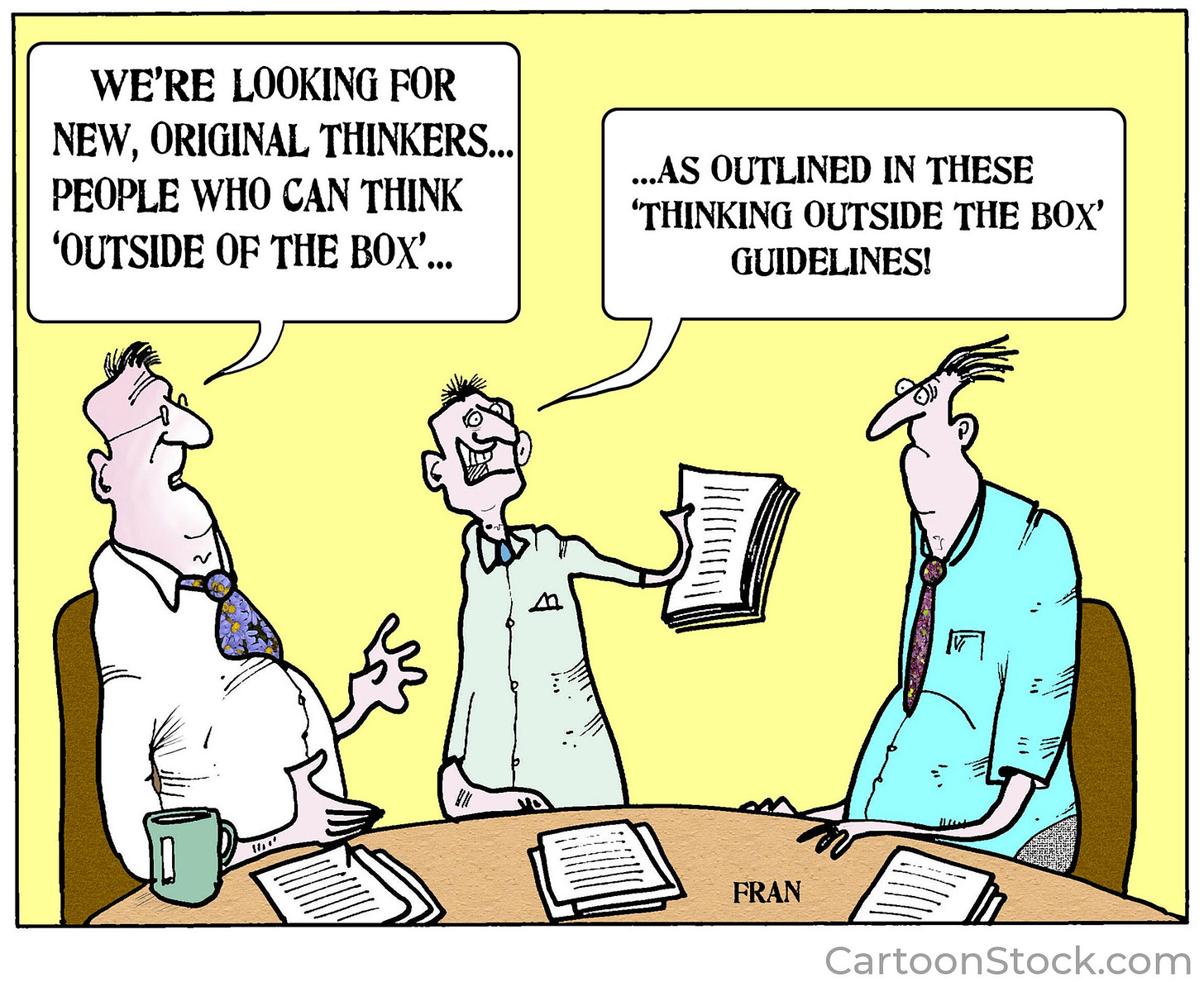

Great article.
I have to confess that I often "borrow" ideas (giving credit to the source) rather than "copy" them. It allows me to expand on them or delve into them which brings out my "original" take and encourages the listener to do likewise.
Ahem ... just like you do.
Thoroughly enjoy your work.
I had a wonderful time.
Thanks, Mardy! Great topic and a needed “kick in the butt” for something I’ve been wanting to write, but have been wasting time searching in vain for a good example to follow. Now I’m ready to go after it, however it turns out.